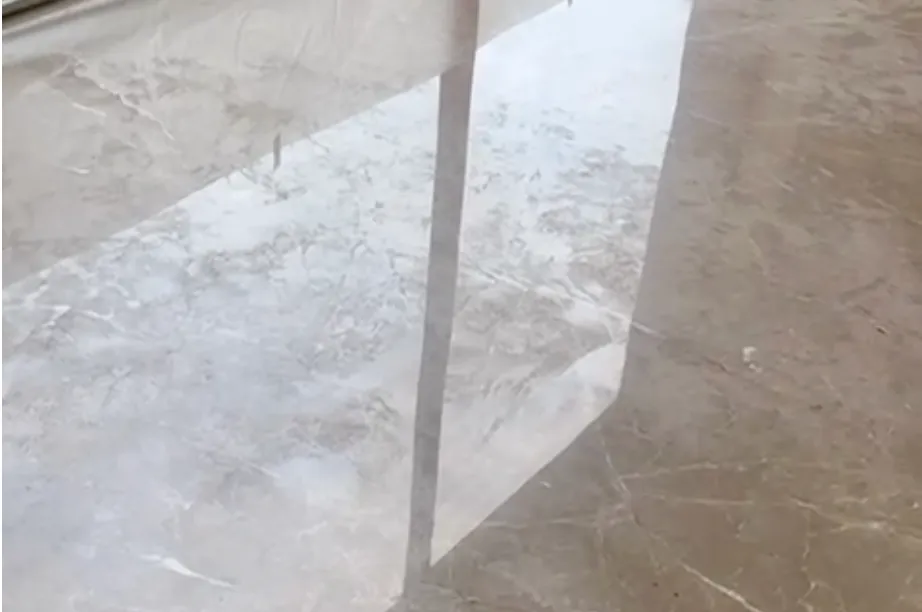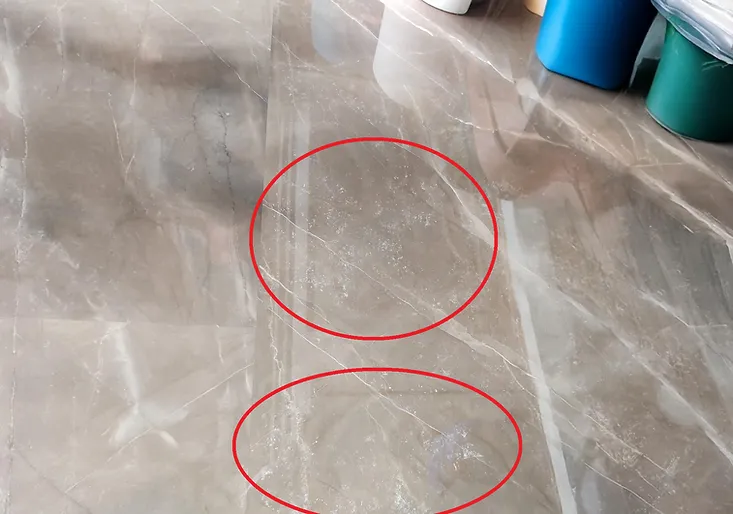How RachTR Resolved Salt Issues in Egyptian and Turkish Marble Installations for Mukul Agarwal, the owner of Kals Tex Pvt. Ltd.
Updated : 7 months ago

Egyptian marbles are renowned for their historical significance and exceptional quality. Turkey, positioned on the Alpine Belt, boasts an extensive variety of marble reserves celebrated for their high lustre and captivating visual appeal. These marbles, however, can present challenges, particularly when it comes to salt content.
Recently, RachTR had the opportunity to address such issues for a client in Indore. In this blog, we will delve into a Q&A session with the client, Mukul Agarwal, the owner of Kals Tex P Ltd (Mumbai), sharing his experience and insights.
Q: Can you tell us about the initial problems you encountered with your Egyptian and Turkish marble installations?
Mukul Agarwal: We were initially drawn to Egyptian and Turkish marbles due to their visual appeal and durability. However, shortly after installation at our site in South Tukoganj, Indore, we noticed several issues, including cracks, efflorescence, and discoloration.
The most pressing problem was the salt content, which caused significant deterioration of the stone surfaces. We tried several measures, all of which failed in the last 18 months.
Fortunately, while searching on the internet for possible solutions, I landed on a blog by RachTR on salt issues. Following this, I contacted RachTR and eventually discussed it in detail with their Technical expert.
Q: How did you identify that salt was the main culprit behind these issues?

Visible white powdery substance on the surface indicating that salt crystallization was the primary issue.
Mukul Agarwal: We observed that the stones were developing a white powdery substance on the surface, which reappeared even after cleaning. Additionally, there were visible cracks and a decrease in the overall strength of the stone.
We were not sure if it was due to salt or other marble installation process-related issues. But after a detailed discussion with RachTR, it became clear that salt crystallization was the primary issue.
Q: What solutions did RachTR provide to address these salt-related problems?

Mukul Agarwal: RachTR recommended a comprehensive approach to tackle the salt issues. First, they discussed with me and our stone contractor to comprehend the actual issues and measures we had taken in the past (all of which eventually failed).
After video calls and image sharing, they were able to pinpoint the major issues and causes. It was zeroed down to salt precipitation.
Then, they shared a step-by-step process for treatment.
Q: Can you describe the process RachTR used to treat the affected stones?
Mukul Agarwal: The treatment process was quite detailed. The process was explained in detail and shared in writing, and again explained to the contractor for nuisances handling.
Q: How effective were these treatments in resolving the salt issues?
Mukul Agarwal: The floor needed complete repolishing again, starting from grinding using diamond pads of No. 100, cleaning using RachTR XC-1, an alkaline cleaner for removing salts from the marble, drying, filling of minor hairline cracks using RachTR Top Fill, treatment using RachTR Back Seal for prevention of salt precipitation, and densification of marble after Diamond pads of No. 200 and 800 using Stone Power.
Finally, before the final buffing after Pads No. 15000-1, 150002, and 15003, sealer application was done using RachTR Top Seal.
Q: Were there any specific maintenance steps recommended by RachTR to prevent future salt problems?
Mukul Agarwal: Yes, RachTR provided us with do’s and don’ts for marble maintenance. They recommended using mild cleansers like RachTR XC-1 and avoiding harsh chemical cleaners that could break down the sealers.
They also advised us to protect the stone from acidic substances and heat and to promptly clean any spills to prevent stains.
Q: How has your experience been with RachTR's products and services?
Mukul Agarwal: Our experience with RachTR has been excellent. Their team was knowledgeable and professional, especially Nikhaar Jain. We tried so many options and after failing, we were losing hope that we can ever be able to see a shining floor in our beautiful house.
Even so, that at some point we may have to change the flooring or add another layer of some alternative.
And then somehow through my internet search I found this young and dynamic Nikhaar, who heard our problem in detail. He studied the issue and then came up with this solution.
The solution presented by Nikhaar was amazing, and we got the floor shining and great with whatever he advised.
I think it’s rare to find gems like Nikhaar. Rare to find people who study a problem in depth and then provide the right solution. And the most beautiful part, this person Nikhaar did it all for no fee or charge. He simply extended himself to provide a solution to us for the problem relating to his area of business.
We are now confident in the longevity and appearance of our marble installations, thanks to RachTR and our sincerest heartfelt thanks to Mr. Nikhaar. A true Gentleman!
Conclusion
The use of Egyptian and Turkish marbles can bring an elegant and timeless look to any space, but it is crucial to address issues like salt content to maintain their beauty and durability.
RachTR's specialized products and treatments have proven effective in resolving these problems, ensuring the long-term performance of these exquisite stones. For anyone facing similar challenges, RachTR's solutions come highly recommended by satisfied clients.
60 views
60
0 comments
0









Comments